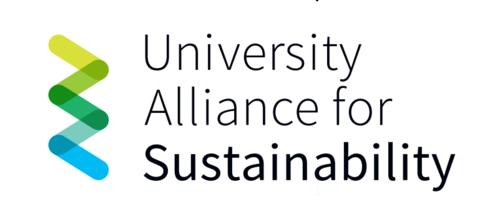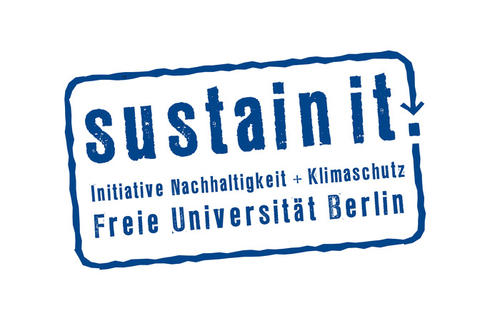Nesting boxes for kestrels at the FU incl. live transmission
Presentation of the project "Nesting boxes for kestrels" during the FUturist Matinee on June 22, 2023.
The Idea Team
Our team consists of members of various university initiatives (Blätterlaube, Unigardening, Blühender Campus, etc.). Our love of nature has brought us together and we want to strengthen our sense of unity with our project. There is a constant need to inspire students and staff at Freie Universität to get involved in sustainability and to identify with the university. The technical part of the project idea contributes to this: the live transmission of the animals via a webcam.
About the Idea
The overarching aim of this project idea is to install a nesting box for kestrels, including a webcam for live transmission of the animals.
There is a need for action on the part of the university and local people to increase biodiversity on campus. After all, the more "biodiverse" an ecosystem is, the more resilient it is to climate change. Experiencing an intact environment also contributes significantly to the health and well-being of university staff and local residents. Experiencing urban wilderness and native wildlife is a need for many people who live in the city.
The live broadcast gives interested parties a direct insight into an otherwise hidden world. They can observe the "cycle of life" using a living and exciting example and follow it in the long term. To create a community feeling of care and compassion for these animals, we will organize various activities, such as a naming ceremony for the kestrel couple and their children.
There are buildings on the three campuses of Freie Universität Berlin that are suitable for this. We are currently working with a kestrel expert, employees from the Technical Department and the departments to find a suitable façade on a tower or a multi-storey building. This must be exposed within a radius of a few hundred meters (as the tallest building) and close to large meadow areas. Once the perfect place for a kestrel has been found, we take care of the technical part, raising awareness through public relations and education.
We want to implement the project outline this year so that the kestrels (or other birds) can start breeding next year and we can be there with the "live" transmission.
Conclusion and outlook
It was an exciting year. We enjoyed the exchange and networking with other project groups, aid initiatives (e.g., SUSTAIN IT!), and the Department of Veterinary Medicine, where students were able to gain important experience with wild birds and innovative digital AI techniques as part of a course. (*This course was also held the following year and another one is planned (contact: Prof. Dr. Vitaly Belik, PD Dr. Kerstin Borchers).
We were also delighted with the public impact of the project at the university, for example in campus.leben. The hatching of the first chicks in the nesting box on May 6, 2024, was certainly a highlight. There were six chicks in total. To commemorate our FUturist project, we decided to name the chicks after the team members Tobias, Benjamin, Leon, Katja, Kerstin, and Sarah.
In addition, the project is anchored in the Department of Veterinary Medicine, where students gain important experience with wild birds and innovative digital AI techniques as part of the course taught by Prof. Vitaly Belik and PD Dr. Kerstin Borchers.
We look forward to exchanging ideas and networking with other project groups and other aid initiatives (e.g. SUSTAIN IT!). But also beyond the university boundaries in the context of citizen science projects. We want to actively contribute to a sustainable university.
*In 2025, the nesting box was occupied again, 6 eggs were incubated, 6 chicks hatched, one died, and shortly after 6 a.m. on June 19, 2025, the last of 5 kestrel chicks flew the nest.
P.s.: Recommended reading "Turmfalke: Falco tinnunculus" (February 11, 2008), ISBN: 978-3894323769 and "Der Turmfalke: Lebensstrategien eines Greifvogels" (January 1, 1993), ISBN: 978-3891045312
Contact
Tobias Schober: Tobias.Schober@fu-berlin.de
Benjamin Haak: bennyhaak@gmail.com




